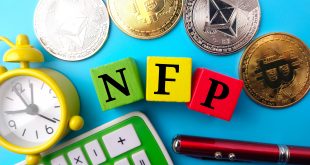The United States Federal Reserve Governor, Lael Brainard, recently voiced her support for a digital dollar.
Brainard believes that a central bank-backed cryptocurrency will provide the market with many benefits, especially in terms of providing the under banked with access to financial services, an issue to rising importance following the pandemic.
“The Federal Reserve remains committed to ensuring that the public has access to safe, reliable, and secure means of payment, including cash.”
“As part of this commitment, we must explore, and try to anticipate, the extent to which households’ and businesses’ needs and preferences may migrate further to digital payments over time.”
The Fed is recently showing more signs that it is moving forward with efforts to establish its own official digital currency, after announcing that it plans to publish a research paper in the summer that explores the prospects of issuing a digital currency.
“The effective functioning of our economy requires that people have faith and confidence not only in the dollar, but also in the payment networks, banks, and other payment service providers that allow money to flow on a daily basis,” the Fed Chair, Jerome Powell, said.
According to the Chairman, the Fed is carefully monitoring and adapting to the developments in the digital currencies and payments domain.
“Our focus is on ensuring a safe and efficient payment system that provides broad benefits to American households and businesses while also embracing innovation,” Powell added, commenting on the announcement.
“Technological advances also offer new possibilities to central banks, including the Fed,” he noted.
“While various structures and technologies might be used, a CBDC could be designed for use by the general public.”
Powell also revealed that the Fed is committed to hearing a wide range of voices on this important issue before making any decision on whether and how to move forward, “taking account of the broader risks and opportunities it could offer. The paper represents the beginning of what will be a thoughtful and deliberative process.”
Last October, Powell said that it is more important to get it right than to be first, when discussing issuing a digital currency by the central bank, explaining getting it right by not only looking at the potential benefits of a digital currency, but also the potential risks.
Then in February, he went on to tell the House of Representatives that the Fed might need congressional approval before issuing a digital Dollar.
“In the United States, the pandemic led to an acceleration of the migration to digital payments as well as increased demand for cash. While the use of cash spiked at certain times, there was a pronounced shift by consumers and businesses to contactless transactions facilitated by electronic payments,” Brainard said.
 Noor Trends News, Technical Analysis, Educational Tools and Recommendations
Noor Trends News, Technical Analysis, Educational Tools and Recommendations





